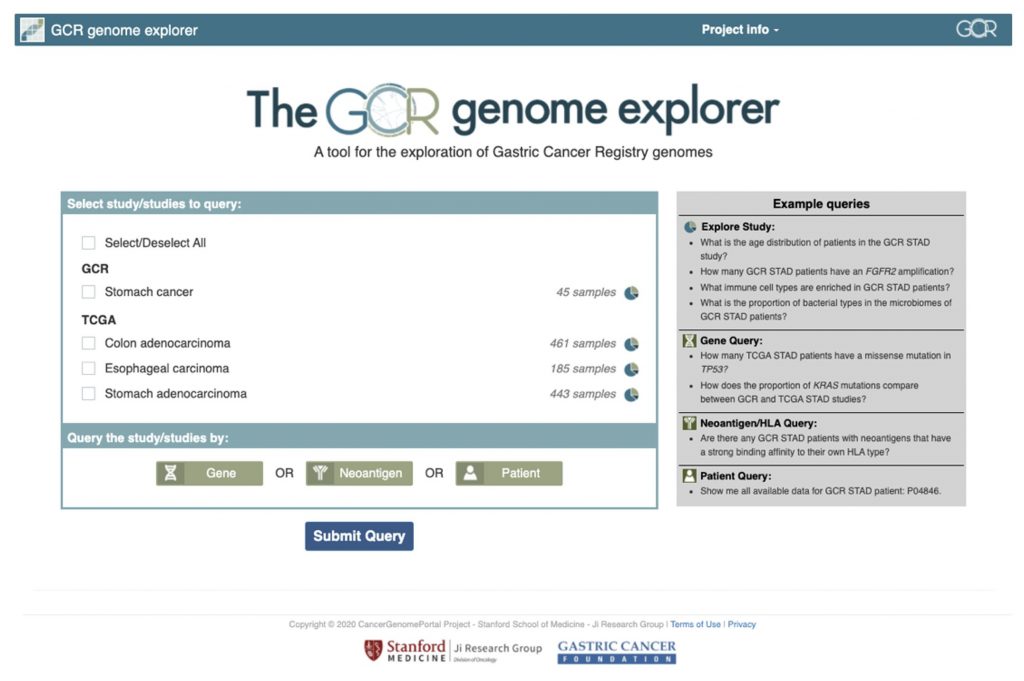Gastric Cancer Registry Prepares to Launch Innovative Data Portal
The Gastric Cancer Registry is the first comprehensive repository of clinical and genomic data pertaining to stomach cancer. Its chief aims are to enhance understanding of gastric cancer and to serve as a resource for developing novel prevention, early detection, and treatment strategies. Created in 2011 through a collaboration between the Foundation and investigators in the Stanford University School of Medicine, the Registry has grown into a rich resource for biomedical research. The Registry has benefited from the expertise of researchers in cancer biology, molecular technology, genomics, and bioinformatics.
For the past few years, the Registry team has collected archival sample of gastric tumor tissue and associated clinical records. With next generation sequencing and deep computational analysis, the Registry has generated valuable datasets on the unique mutations, microbiome, and immune cell populations in the gastric tumor microenvironment. The principal investigator, Dr. Hanlee Ji, has pledged to make these data available to the scientific community with the aim of catalyzing revolutionary gastric cancer research.
The Genome Explorer is a secure, HIPAA-compliant web portal designed and developed by Dr. Ji’s team to house clinical and genomic datasets derived from the Gastric Cancer Registry. The Genome Explorer enables sophisticated genomic analyses and mapping of associations between genetic errors and a patient’s clinical features. “The Genome Explorer is a powerful therapeutic platform for researchers to investigate the molecular complexities of gastric cancer,” says Dr. Ji. The GCR portal will allow users to identify critical markers of gastric cancer and accelerate the discovery of new therapeutic strategies with an emphasis on immune-based therapies. The preliminary version houses 45 gastric cancer samples and the GCR team is working hard to increase robustness by integrating data from additional samples.
It is Dr. Ji’s earnest hope that this online resource will pave the way for future research studies that enhance the prevention, early detection and treatment of gastric cancer. He plans to release the first version of the exciting Genome Explorer in the coming months to biomedical researchers.

Front page of the Gastric Cancer Registry Genome Explorer.
The GCR was created with the generosity of Diane and Ronald Weintraub, in memory of their beloved daughter Beth Weintraub Schoenfeld.
